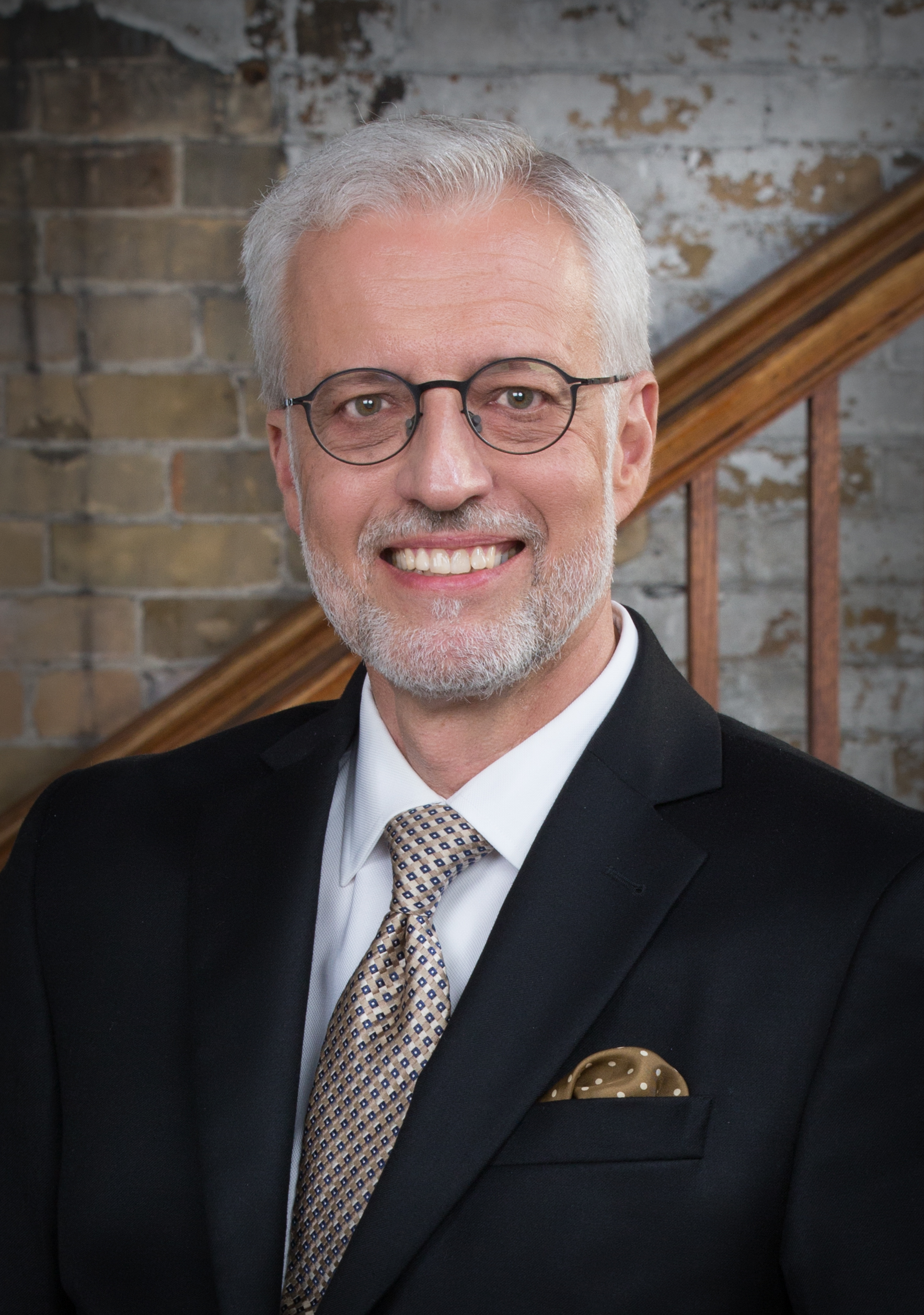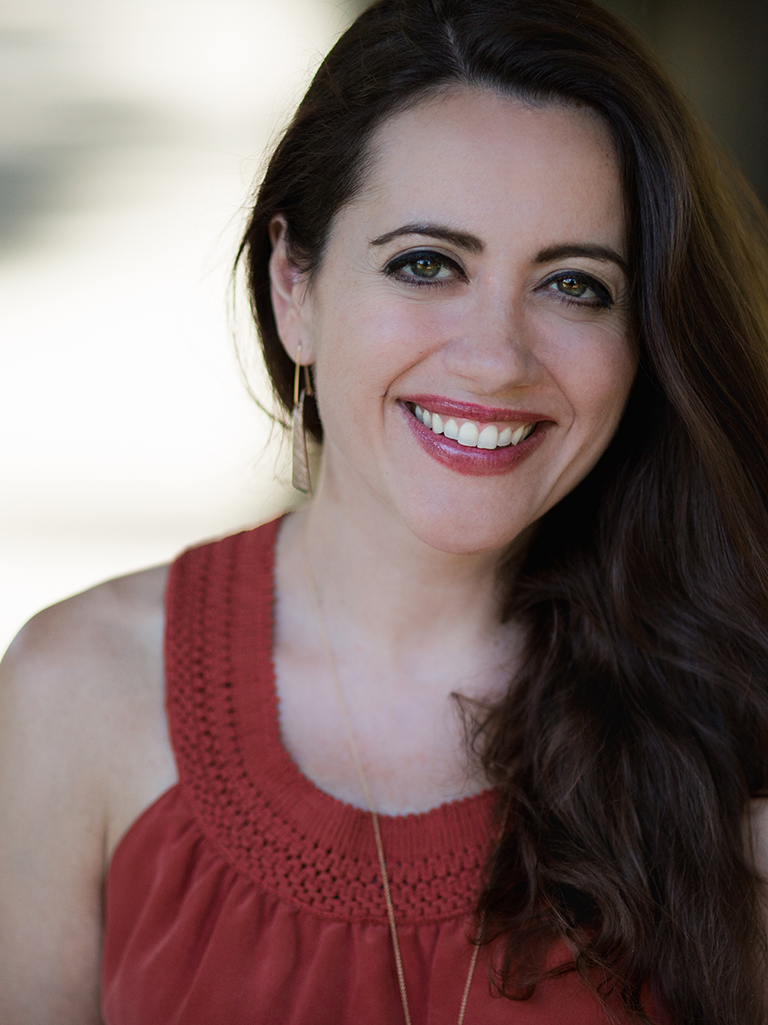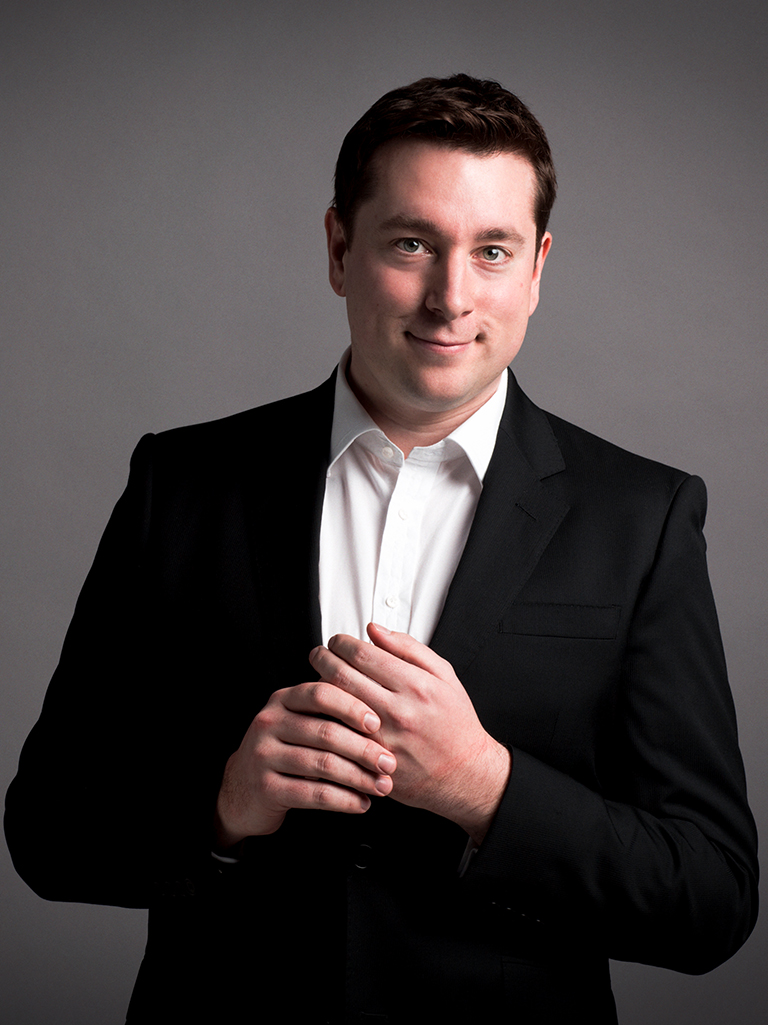Tafelmusik Baroque Orchestra & Choir
Live performances:
May 31–June 2, 2024 at Koerner Hall, TELUS Centre for Performance and Learning
Directed by Ivars Taurins
Amanda Forsythe, soprano
Thomas Hobbs, tenor
Program
Chorus
Your harps and cymbals sound, from Solomon
Tenor Air
Tune your harps, from Esther
Soprano Air
Sweet bird, from L’Allegro, il Penseroso ed il Moderato
Tenor Air/Chorus
Sound an alarm, from Judas Maccabeus
Soprano Air
In Jehovah’s awful sight, from Deborah
Chorus
Throughout the land Jehovah praise, from Solomon
Chorus
Doleful tidings, from Deborah
Tenor Air
Hateful man, from Alexander Balus
Soprano Recitative
Shall Cleopatra ever smile again, from Alexander Balus
Soprano Air
O take me, from Alexander Balus
Tenor Air
To God who made the radiant sun, from Alexander Balus
Chorus
Sun, moon, and stars, from Alexander Balus
Tenor Air
Golden columns, from Solomon
Soprano Air
Prophetic raptures, from Joseph & His Brethren
Chorus
Hallelujah, Amen, from Judas Maccabeus
INTERMISSION
Chorus
Now love that everlasting boy, from Semele
Chorus
Jealousy, infernal pest, from Hercules
Tenor Recitative
Now all this scene, from Semele
Tenor Air
Where’er you walk, from Semele
Soprano Air
Myself I shall adore, from Semele
Chorus
Wanton god of amorous fires, from Hercules
Tenor Arioso
Ah, whither is she gone, from Semele
Chorus
Draw the tear from hopeless love, from Solomon
Duet
Who calls my parting soul, from Esther
Chorus
Crown with festal pomp, from Hercules
Duet
As steals the morn, from L’Allegro
Chorus
The mighty power/Give glory, from Athalia
The concert is being recorded for future release on the Tafelmusik Media label.
Tafelmusik Chamber Choir
Ivars Taurins, Choir Director
Soprano
Alison Beckwith, Jane Fingler, Roseline Lambert, Carrie Loring, Lindsay McIntyre, Susan Suchard, Sinéad White, Jennifer Wilson
Alto
Nicholas Burns, James Dyck, Kate Helsen, Valeria Kondrashov, Peter Koniers, Jessica Wright
Tenor
Ben Done, Paul Jeffrey, Will Johnson, Robert Kinar, Cory Knight, Sharang Sharma
Bass
Alexander Bowie, Parker Clements, Paul Genyk-Berezowsky, Nicholas Higgs, Alan Macdonald, George Theodorakopoulos
Tafelmusik Baroque Orchestra
Violin I
Cristina Zacharias, Patricia Ahern, Chloe Fedor, Elizabeth Loewen Andrews, Christopher Verrette
Violin II
Julia Wedman, Louella Alatiit, Geneviève Gilardeau, Valerie Gordon, Joseph Lanza
Viola
Patrick G. Jordan, Brandon Chui, Shannon Knights
Violoncello
Michael Unterman*, Keiran Campbell, Margaret Gay
Double Bass
Richard Myron, Sue Yelanjian
Flute
Grégoire Jeay
Oboe
John Abberger, Curtis Foster
Bassoon
Dominic Teresi, Stephanie Corwin
Trumpet
Kathryn Adduci, Shawn Spicer
Timpani
Ed Reifel
Harpsichord/Organ
Charlotte Nediger, Hank Knox
Access full bios for core Tafelmusik members at tafelmusik.com/choir and tafelmusik.org/orchestra
* Cello chair generously endowed by the Horst Dantz and Don Quick Fund

Ivars Taurins
Choir Director
Equally at home conducting symphonic and choral repertoire, Ivars Taurins is the founding director of the Tafelmusik Chamber Choir, now celebrating its 42st season. He was also founding member and violist of the Tafelmusik Orchestra for its first 23 years. Under his direction, the choir has been praised for its clarity, nuance, and brilliance.
Principal Baroque Conductor of the Calgary Philharmonic Orchestra from 2001 to 2011, Ivars appears as guest director with orchestras and choirs across Canada, including the Edmonton, Winnipeg, and Regina Symphony Orchestras, Victoria and Kitchener-Waterloo Symphonies, Calgary and Hamilton Philharmonic Orchestras, Symphony Nova Scotia, Pacific Baroque Orchestra, Vancouver Chamber Choir, Toronto Mendelssohn Choir, Pro Coro Canada, Halifax Camerata Singers, and at the Festival International de Musique Baroque de Lamèque. In 2011, Ivars was guest choir director for the Orchestre symphonique de Montréal, preparing a combined chorus of Tafelmusik Chamber Choir and members of the OSM Chorus for performances and a recording (Analekta) of Beethoven’s Ninth Symphony, directed by Kent Nagano at the gala opening of the new Maison Symphonique in Montreal.
Ivars Taurins and the Tafelmusik Chamber Choir have premiered works by R. Murray Schafer, Omar Daniels, Chan Ka Nin, Brian Cherney, and Paul Frehner with Soundstreams Canada. The choir has also commissioned and premiered works by Tawnie Olsen, Jeffrey Ryan, Imant Raminsh, James Rolfe, Christos Hatzis, and Ruth Watson Henderson.
Ivars was nominated for a 2011 Gemini Award for his performance as George Frideric Handel in Sing-Along Messiah, filmed by 90th Parallel Productions for Bravo! Television and released on DVD by Tafelmusik Media.
A passionate lecturer and teacher, Ivars teaches orchestral conducting at the University of Toronto. He is also on the faculty of the Glenn Gould School, where he has directed fully staged productions of Handel’s Alcina and Rinaldo, collaborating with veteran stage directors Leon Major and Tom Diamond. Ivars has been a guest teacher/conductor at universities across Canada. He was director of the 2012 National Youth Choir, and has directed the Ontario and Nova Scotia Youth Choirs, and the London, Calgary and Nova Scotia Youth Orchestras. Ivars Taurins is director of the vocal/choral program at the annual Tafelmusik Baroque Summer Institute.
Guest Artists

Amanda Forsythe
Soprano
Recognized internationally as a leading interpreter of baroque repertoire, Amanda Forsythe has performed with the Handel and Haydn Society, Music of the Baroque, Philharmonia Baroque, Tafelmusik, Apollo’s Fire, Boston Baroque, and Boston Early Music Festival, with whom she recorded Eurydice in Charpentier’s La descente d’Orphée aux enfers, winning the GRAMMY Award for Best Opera Recording.
She is a regular soloist with the Chicago Symphony Orchestra and New York Philharmonic, and has also performed with Hong Kong Philharmonic Orchestra, Philadelphia Orchestra, Boston Symphony, Los Angeles Philharmonic, Monteverdi Choir and Orchestra, and Rome’s Accademia Nazionale di Santa Cecilia.
Opera engagements have included major roles in the houses of Geneva, Munich, Philadelphia, Rome, Seattle, Berlin (Komische Oper), and the Rossini Opera Festival, Pesaro.
She has worked with conductors Laurence Cummings, Sir John Eliot Gardiner, Nicholas Kraemer, Nicholas McGegan, Andris Nelsons, Sir Antonio Pappano, Martin Pearlman, and Christophe Rousset.

Thomas Hobbs
Tenor
British tenor Thomas Hobbs is in high demand with many leading early music ensembles. Recent highlights include numerous performances of Bach cantatas with Gli Angeli Geneva, and appearances with Le Banquet Céleste, Alia Mens, Netherlands Bach Society, Montreal Bach Festival, Bach Collegium Japan, Israel Camerata, Les Arts Florissants, Australian Chamber Orchestra, Dunedin Consort, Collegium Vocale Ghent, and Tafelmusik, among others. Opera roles include Telemachus in The Return of Ulysses for English National Opera, Apollo and Shepherd in Monteverdi’s Orfeo with the Academy of Ancient Music, the title role in Albert Herring, and Ferrando in Così fan tutte. Thomas’ ever-expanding discography includes several recordings of Bach with Collegium Vocale Ghent and with Dunedin Consort, Mozart Requiem and Handel Acis & Galatea and Esther with Dunedin Consort, and Beethoven Mass in C Major with Stuttgart Kammerchor, and Handel Chandos Anthems with Orchestra of the Age of Enlightenment.
Texts & Translations
Chorus from Solomon
Your harps and cymbals sound
to great Jehovah’s praise!
Unto the Lord of Hosts
your willing voices raise.
Tenor (First Israelite) Air from Esther
Tune your harps to cheerful strains,
moulder Idols into dust!
Great Jehovah lives and reigns,
we in great Jehovah trust.
Soprano (Il Penseroso) Air from L’Allegro
Sweet bird, that shun’st the noise of folly,
most musical, most melancholy.
Thee, chantress of the woods among,
I woo to hear thy even song.
Or missing thee, I walk unseen
on the dry smooth shaven green,
to behold the wand’ring moon
riding near her highest noon.
Tenor (Judas Maccabeus) Air/Chorus from Judas Maccabeus
Sound an alarm – your silver trumpets sound,
and call the brave, and only brave, around.
Who listest, follow: to the field again!
justice with courage is a thousand men.
Sound an alarm – your silver trumpets sound,
and call the brave, and only brave, around.
We hear the pleasing, dreadful call:
And follow thee to conquest:
If to fall, for laws, religion, liberty, we fall.
Soprano (Deborah) Air from Deborah
In Jehovah’s awful sight,
haughty tyrants are but dust.
Those, who glory in their might,
place in vanity their trust.
Chorus from Solomon
Throughout the land Jehovah’s praise record,
for full of pow’r and mercy is the Lord.
Chorus (Baal’s Priests) from Deborah
Doleful tidings, how ye wound!
Despair and death are in that sound!
Tenor (Jonathan) Air from Alexander Balus
Hateful man! thy sland’rous tongue
throws in vain the poison’d dart.
Know, that ‘twill recoil ere long,
doom’d to stab the traitor’s heart.
Soprano (Cleopatra) Recitative & Air from Alexander Balus
Shall Cleopatra ever smile again?
Oh no! whate’er a father may command,
he cannot change the course of heartsore grief.
O take me from this hateful light:
torture end me, death befriend me,
wrapt in shades of endless night.
Tenor (Jonathan) Air from Alexander Balus
To God, who made the radiant sun,
and fix’d him in his central throne,
the paler moon, and ev’ry star,
that darts his beamy light from far;
to Him, almighty, greatest, best,
Jehovah, Lord of Hosts contest,
all victory belongs.
To Him alone ‘tis Judah’s care,
to offer up their humble pray’r,
and tune their grateful songs.
Chorus from Alexander Balus
Sun, moon, and stars, and all ye Host of Heav’n,
to great Jehovah be all glory giv’n.
On his creating, his allsaving pow’r,
Judah shall call, and him alone adore.
Tenor (Zadok) Air from Solomon
Golden columns, fair and bright,
catch the mortal’s ravish’d sight:
round their sides ambitious twine
tendrils of the clasping vine:
cherubims stand there display’d,
o’er the ark their wings are laid:
ev’ry object swells with state,
all is pious, all is great.
Soprano (Asenath) Air from Joseph and His Brethren
Prophetic raptures swell my breath,
And whisper we shall still be blest;
That this black gloom shall break away,
And leave more heav’nly bright the day.
Chorus from Judas Maccabeus
Hallelujah, Amen.
O Judah, rejoice, in songs divine,
With Cherubin and Seraphin, harmonious join.
INTERMISSION
Chorus from Semele
Now Love that everlasting boy invites,
to revel while you may in soft delights.
Chorus from Hercules
Jealousy! infernal pest,
tyrant of the human breast!
How from slightest causes bred,
dost thou lift thy hated head!
Trifles light as floating air,
strongest proofs to thee appear.
Tenor (Jupiter) Recitative & Air from Semele
Now all this scene shall to Arcadia turn,
the seat of happy nymphs and swains;
there without the rage of jealousy they burn,
and taste the sweets of love without its pains.
Where’er you walk, cool gales shall fan the glade;
trees, where you sit, shall crowd into a shade.
Where’er you tread, the blushing flow’rs shall rise,
and all things flourish where’er you turn your eyes.
Soprano (Semele) Air from Semele
Myself I shall adore,
if I persist in glazing.
No object sure before
was ever half so pleasing.
Chorus from Hercules
Wanton god of amorous fires,
wishes, sighs and soft desires,
all nature’s sons thy laws maintain!
O’er liquid air and swelling main,
extends thy uncontrol’d and boundless reign.
Tenor (Jupiter) Arioso from Semele
Ah, whither is she gone! unhappy fair!
why did she wish! why did I rashly swear!
‘Tis past recall, she must a victim fall!
Anon when I appear, the mighty thunderer,
arm’d with inevitable fire,
she needs must instantly expire.
‘Tis past recall, she must a victim fall!
My softest lightning yet I’ll try,
and mildest melting bolt apply:
in vain! for she was fram’d to prove
none but the lambent flames of love.
‘Tis past recall, she must a victim fall!
Chorus from Solomon
Draw the tear from hopeless love,
lengthen out the solemn air,
full of death and wild despair.
Soprano/Tenor Duet from Esther
(Esther) Who calls my parting soul from death?
(Ahasverus) Awake, my soul, my life, my breath!
(Esther) Hear my suite, or else I die,
(Ahasverus) Ask, my Queen, can I deny?
Chorus from Hercules
Crown with festal pomp the day,
be mirth extravagantly gay,
bid the grateful altars smoke;
bid the maids the youths provoke
to join the dance, while music’s voice
tells aloud our rapturous joys!
Soprano/Tenor Duet from L’Allegro
As steals the morn upon the night,
and melts the shades away,
so truth does Fancy’s charm dissolve
and rising reason puts to flight
the fumes that did the mind involve,
restoring intellectual day.
Chorus from Athalia
The mighty pow’r, in whom we trust,
is ever to his promise just;
He makes this sacred day appear,
the pledge of a propitious year.
Give glory to His awful name,
let ev’ry voice His praise proclaim!
Note from Ivars Taurins
When Handel turned to writing large-scale works in English, he set the benchmark for future generations. His oratorios inspired Haydn to write his two great works, The Creation and The Seasons, and influenced 19th-century composers such as Beethoven and Mendelssohn. Handel’s genius as a composer of opera and of large-scale sacred choral works shines out from every page of the scores of his oratorios, musical dramas, and odes. His uncanny sense of dramatic pacing, and his ability to convey human emotions
and psychological struggles in music, gleaned through years of writing for the opera theatre, are evident everywhere. The magnificent choruses reflect Handel’s talent for writing music for grand occasions with bold brushstrokes. He is able at one moment to deal with a panoply of monumental events — battles, feasts, plagues, ceremonies — and in the next to draw us into the most intimate workings of the heart and mind.
I created this Handel Celebration by sifting through his many oratorios and odes, compiling some of his “best” airs and choruses to create a musical whole. This technique, known as pasticcio (derived from the Italian culinary word for a kind of filled pie made of many ingredients), was very popular in the 18th century. It was, if you will, a musical medley of various ingredients borrowed from other pre-existing works. I hope that my Handel pasticcio gives you something of the flavour of the grandeur, pathos, drama, intimacy, and joy to be found in Handel’s English dramatic works. Some will be old chestnuts. Others will, I hope, invite you to explore more of the riches of this great composer.
We open with contrasting images of Music: that of celebration and praise, both extrovert and intimate (Solomon, Esther); the soft, melancholic music of nature (L’Allegro); and the brazen, stirring, and “dreadful” music of battle (Judas Maccabaeus). In every conflict there is the victor and the vanquished. Handel is equally adept at, and sensitive to, portraying both sides of war. Indeed, his musical images of grief, woe, and despair are among his most potent, whether for chorus (Deborah) or for solo voice (Cleopatra in Alexander Balus). Turning to celebration, thanksgiving, and solemn praise, Handel paints radiant peace (Jonathan in Alexander Balus) or joyful triumph (Judas Maccabaeus).
In the second half, we focus on Love and all its facets: from its “soft delights,” to its bedfellows jealousy, vanity, desire, and despair.
Handel had a particular affinity with the English landscape, and his pastoral music is second to none (with the possible exception of Vaughan Williams). From the rustic quality of “Crown with festal pomp” (Hercules) to the idyllic duet from L’Allegro, Handel captures the essence of the “fairest Isle.”
Handel bequeathed his setting of the coronation anthem Zadok the Priest to the nation—it has been a part of every coronation since George II. His masterful sense of grandeur and occasion, whether for secular (Water Music, Royal Fireworks) or sacred (Coronation Anthems) events, was used by him to great effect in his oratorios. The final chorus from Athalia is a brilliant example of this, and a fitting end to a pasticcio drawn from Handel’s many and varied settings of English texts.
Program Notes
By Charlotte Nediger
In 1710 Handel arrived in London, fresh from three years immersed in the study and composition of opera in Italy. The English audiences had been slow to accept Italian opera as a viable entertainment, but with the arrival of Handel they were quick to change their minds. For over 20 years Handel regaled London audiences with a steady stream of opera productions at the King’s Theatre in the Haymarket—all in Italian and sung by Italian singers.
By the 1730s the English public was starting to tire of the foreign entertainment. Although Handel was far from finished with opera, he started to experiment with English entertainments: odes, serenades, and the first English oratorios. An oratorio is, by definition, a musical setting of a biblical text. It includes dramatic, narrative and contemplative elements, and its musical forms are closely linked to those of opera. It is presented as a concert, without action, costume, or extensive scenery. Resplendent with stunning arias, the English oratorio was essentially Handel’s own invention and owed much to his talent and experience as an opera composer. The librettos of the oratorios, usually drawn from the Old Testament, led Handel to give prominence to the chorus. Like a Greek chorus, it participated on various levels, sometimes involved directly in the action, and at other times serving as commentator. This choral element, lacking in Italian opera, contributed much to the success of the genre. It also gave Handel an opportunity to demonstrate his genius as a choral composer to a larger audience.
Between 1732 and 1757 Handel composed 17 oratorios based on biblical stories. He also composed two oratorios based on mythological tales: Semele and Hercules—arguably English operas, though including a chorus and written for concert, not staged, performance. A number of extended odes were also presented as part of Handel’s oratorio seasons, including a masterful setting of Milton’s L’Allegro ed il Penseroso. Neither Handel nor his audiences embraced the new English entertainments overnight, but both were increasingly drawn to it. The vernacular language, the familiar and morally upright stories, the homebred English singers who replaced the imported Italian superstars, the tenor—rather than castrato—as hero, and stirring choruses all combined to create an entertainment that suited Handel’s talents and his audience’s tastes. By 1743 Handel had stopped presenting opera altogether, devoting his time in the theatre to his oratorio season.
